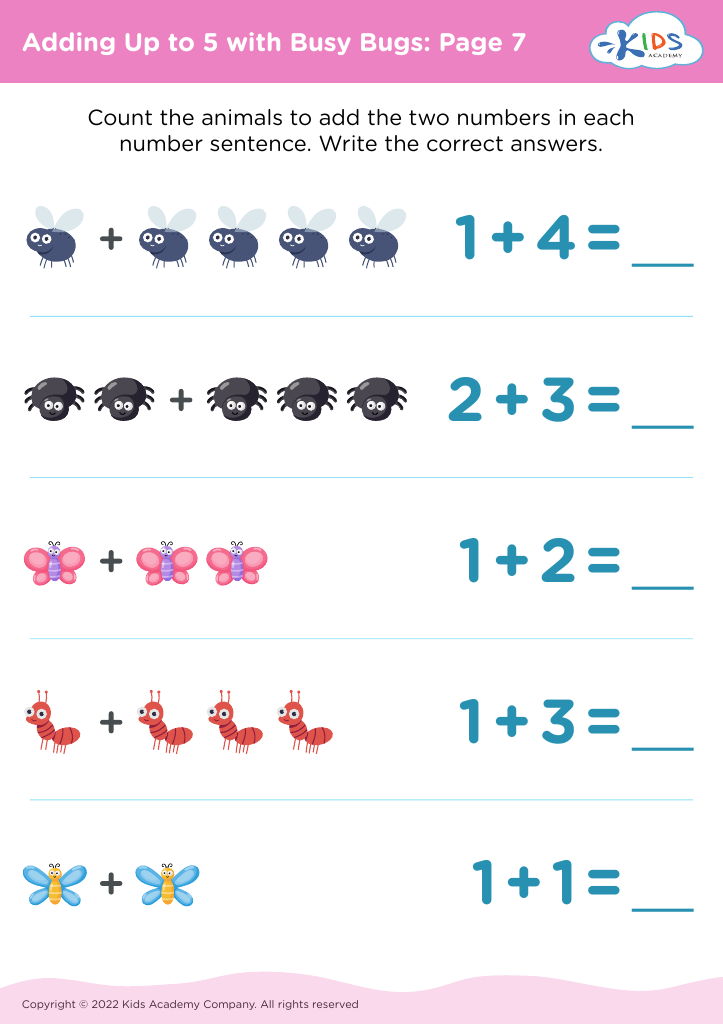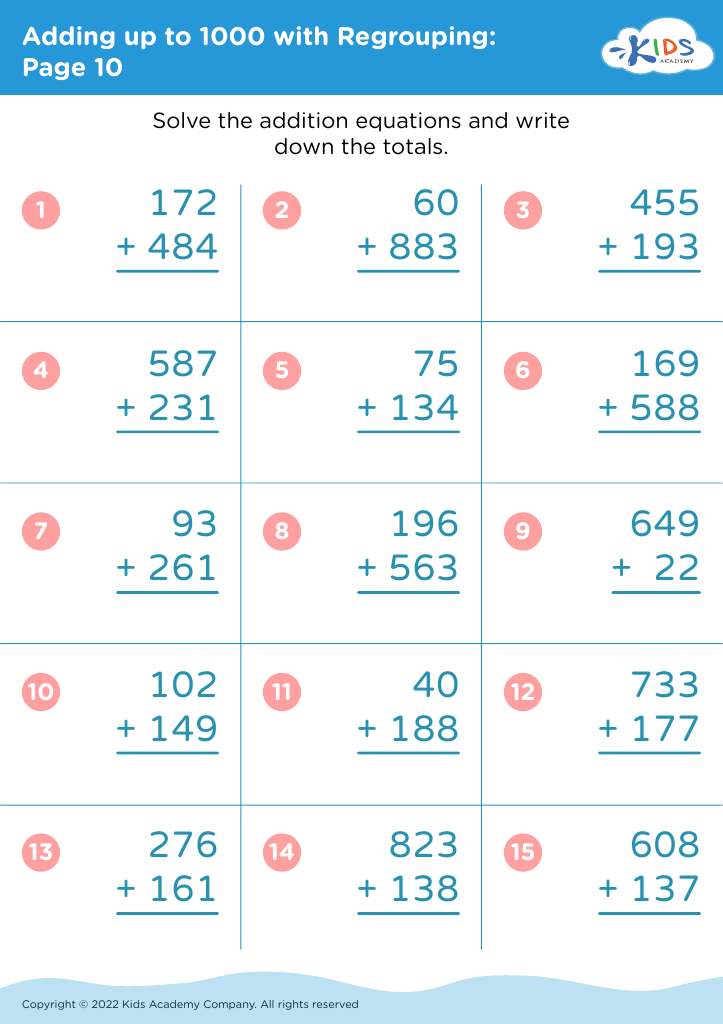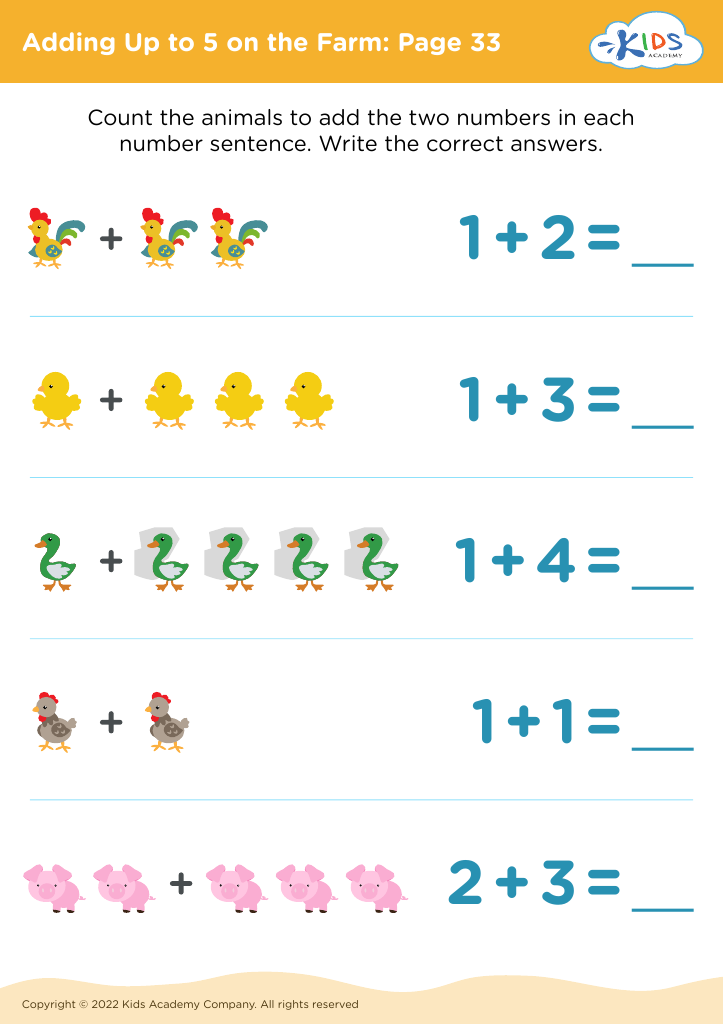Developing fine motor skills Addition & Subtraction Worksheets for Ages 3-9
4 filtered results
-
From - To
Enhance your child's learning journey with our engaging Fine Motor Skills Addition & Subtraction Worksheets, designed specifically for ages 3-9. These worksheets not only introduce fundamental math concepts but also incorporate fine motor skill development through interactive activities. By tracing numbers, practicing counting, and engaging in pencil control exercises, your child will build confidence and coordination while mastering addition and subtraction techniques. Ideal for home or classroom use, our resources provide a playful and effective way for kids to develop essential skills. Download our worksheets today and watch as your young learners thrive in both math and fine motor abilities!
Developing fine motor skills and foundational math concepts like addition and subtraction are critical for children aged 3-9, as they set the groundwork for future academic success and everyday functioning. Fine motor skills enable children to perform essential tasks such as holding a pencil, using scissors, and manipulating objects, all of which are crucial for writing and completing school assignments.
In addition, early exposure to math concepts through hands-on activities helps children grasp basic arithmetic, promotes problem-solving, and fosters a love for mathematics. Engaging in playful activities that promote fine motor skills—like crafts, puzzles, or building blocks—can seamlessly integrate the learning of addition and subtraction in fun ways, making these concepts more relatable.
Parents and teachers play an instrumental role in this developmental process. By encouraging activities that blend fine motor skill development with math, they nurture cognitive growth and creativity. Moreover, developing these skills in early childhood can prevent future learning difficulties, leading to greater confidence and academic achievement. Ultimately, when parents and educators prioritize fine motor skills and basic math understanding, they cultivate well-rounded, capable children equipped for later educational challenges and lifelong learning.

























